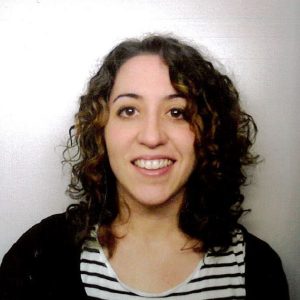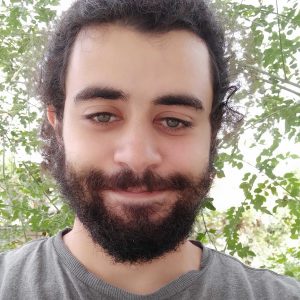Conference: October 10th
Hackathon: October 8th and 9th
HYBRID EVENT
An IndabaX is a local branch of the Deep Learning Indaba, Africa’s premier AI Conference that helps spread knowledge and builds capacity in machine learning on the continent.
In 2019, IndabaX Tunis brought together more than 320 AI enthusiasts and international speakers, and we’re doing it again!
Join us for 3 days packed with panels, workshops, hackathons, talks and more! If you’re an AI enthusiast, you cannot miss this event!
About INDABAX Tunisia 2021
The second edition of IndabaX Tunisia will take place from the 8th to the 10th of october 2021 as a hybrid event.
It is an opportunity for the Tunisian AI community to meet, discover the most recent advances in the field and interact with world-leading AI researchers.
If you are a beginner and curious to learn more or if you are an expert in Machine Learning, you are encouraged to join us and be part of a network fully committed to building the future of AI in Tunisia.
Hackathon
In partnership with ZINDI, we have prepared for you two hackathons with different levels of difficulty to suit your interests.
Beginner Friendly Competition (24h):
The aim of this competition is to introduce newcomers to the field of AI and to help them set their stepping stone in the world of Machine Learning. This Competition will be guided through Starter-Notebooks and our team’s assistance. If this is your first time participating in a ZINDI hackathon, this is the one for you.
Advanced Competition (48h):
This competition will be a step higher in the level of difficulty and will target a real-life problem which will be announced on the day of the competition. An extremely significant prize pool awaits the winners. If you have the competitive spirit and you’re looking for a win to prove your skills, this is your go to choice. You can participate in teams of two to three members or individually.
Meet our speakers

Karim Beguir
Co-founder and CEO at InstaDeep | Google Machine Learning Developer Expert

Tristan CAZENAVE
Professor of Artificial Intelligence at LAMSADE, University Paris-Dauphie, PSL.

Amanda J. Minnich
Senior Applied Machine Learning Researcher on Microsoft's Trustworthy ML Team

Kaouther Boussema
Docteur en Intelligence artificielle, CEO de la société Kin’Yu Consulting, Chargée des études du Master Big Data à Dauphine I Tunis.

Kaouther Boussema
Docteur en Intelligence artificielle, CEO de la société Kin’Yu Consulting, Chargée des études du Master Big Data à Dauphine I Tunis.

Daniel Godoy
Data scientist, teacher, and author of "Deep Learning with PyTorch Step-by-Step: A Beginner's Guide"

Daniel Godoy
Data scientist, teacher, and author of "Deep Learning with PyTorch Step-by-Step: A Beginner's Guide"

Marie Lopez
Bio Engineer at InstaDeep

Mouafek Ayadi
Data Scientist at ODDO BHF and Certified Data Engineer

Ibtissem Kadri
Computer Vision Engineer at InstaDeep

Mohamed Mounir Moussa
Computer Vision Engineer at InstaDeep

Sinda Ben Salem
Senior Product Lead at InstaDeep
Will Pearce
Red Team Lead for Azure Trustworthy ML at Microsoft
Program Outline 8-10 October 2021
-
Conference
-
Hackathon
Sunday 10th: The Main Event
Check-In
9h15
Welcoming Speech
9h30
Building the future with AI
By Karim Beguir
10h15
Machine Learning for Hackers and Slackers
By Amanda Minnich
10h45
Break
11h00
Monte Carlo Search
By Tristan CAZENAVE
12h00
Round Tables
Seeking a Masters degree in AI/ML in Tunisia
By Kaouthar Boussema
How to increase your chances to join an AI-centric company
By Dr Sinda Ben Salem
13h00
Lunch Break and Networking
14h00
Workshops
Understanding the language of proteins with deep learning
close
Understanding the language of proteins with
deep learning
Level: Medium
By Marie Lopez, Mohamed Mounir Moussa , Ibtissem Kadri
Overview:
With the increasing availability of large-scale biological data, the
applications of deep learning approaches are now expanding to several fields of
healthcare and life sciences. The promise of tackling problems that could
benefit the health of millions of people together with the necessity to analyse
highly dimensional and highly structured data, have led to key developments in
machine learning applied to diagnostic imaging, disease severity prediction and
proteomics. As proteins are the machinery of life, one of the crucial challenges
for computational biology is to be able to predict the function and 3D structure
of proteins from their sequences of amino-acids alone. Recently, such
predictions have been made possible by the use of language modeling
self-supervised trainings and the use of state-of-the-art architecture like the
transformer, to help closing the gap of sequence annotation. In this workshop,
we will show participants how to use protein pre-trained embeddings to build a
classifier of African Covid-19 strains and predict their respective 3D
structures for comparison. We will provide the necessary guidance, tools and
background to understand the key concepts of biology, how to use protein
pre-trained embeddings and how to predict protein 3D structures from scratch
using Alphafold2.
Outcome:
At the end of the workshop, participants should have a good understanding of how
to use pre-trained embeddings and de novo structure predictions to help protein
characterisation as well as knowledge about real-life use-cases. On the
practical side, participants:
Should understand the differences between several protein embeddings and be able
to compute them for any protein sequence.
Are able to perform protein 3D structure predictions and compare them with the
appropriate tools.
Prerequisites:
Participants should be comfortable with programming in Python.
Have a basic understanding of key concepts in machine learning and in
particular, natural language processing.
No prior knowledge of biology is expected or required.
By Marie Lopez, Mohamed Mounir Moussa , Ibtissem Kadri
Machine learning with Google Cloud Platform
close
Machine learning with Google Cloud Platform
Level: Beginner
By Mouafek Ayadi
Qwiklabs Workshop Description:
Qwiklabs Workshop Description
Build a simple End-to-End Machine Learning solution for Predicting Housing
Prices using Tensorflow and AI Platform and leverage the Cloud for distributed
training and online prediction.
Sources
Sources & Prerequisites:
By Mouafek Ayadi
14h00
Workshops
Machine Learning for Hackers and Slackers – the Workshop
close
Machine Learning for Hackers and Slackers – the Workshop
Level: Intermediate
By Amanda Minnich & Will Pearce
Description :
Learn the basics of assessing the security of your ML modals with Azure/counterfit:
a CLI that provides a generic automation layer for assessing the security of ML models.
Check the project on github for more information:
https://github.com/Azure/counterfit
By Amanda Minnich & Will Pearce
Introductory PyTorch resources
close
Introductory PyTorch resources
Level: Beginner
By Daniel Godoy
Overview :
Learn the basics of building a PyTorch model using a structured, incremental and from first
principles approach. Find out why PyTorch is the fastest growing Deep Learning framework and
how to make use of its capabilities: autograd, dynamic computation graph, model classes,
data loaders and more.
The main goal of this session is to show you how PyTorch works: we will start with a simple
and familiar example in Numpy and "torch" it! At the end of it, you should be able to
understand PyTorch's key components and how to assemble them together into a working model.
Resources & Prerequisites:
We will use Google Colab and work our way together into building a complete model in
PyTorch. You should be comfortable using Jupyter notebooks, Numpy and, preferably, object
oriented programming.
https://github.com/dvgodoy/FundamentalsPyTorch_IndabaX_Tunisia
By Daniel Godoy
16h00-17h00
Closing Ceremony
Friday 8th: Day 1
13h00
Advanced Hackathon: Infosession
14h00
Advanced Hackathon: kick-off
Saturday 9th: Day 2
Beginner Friendly Hackathon: kick-off
9h00
Beginner Friendly Hackathon: How to use the ZINDI platform
11h00












